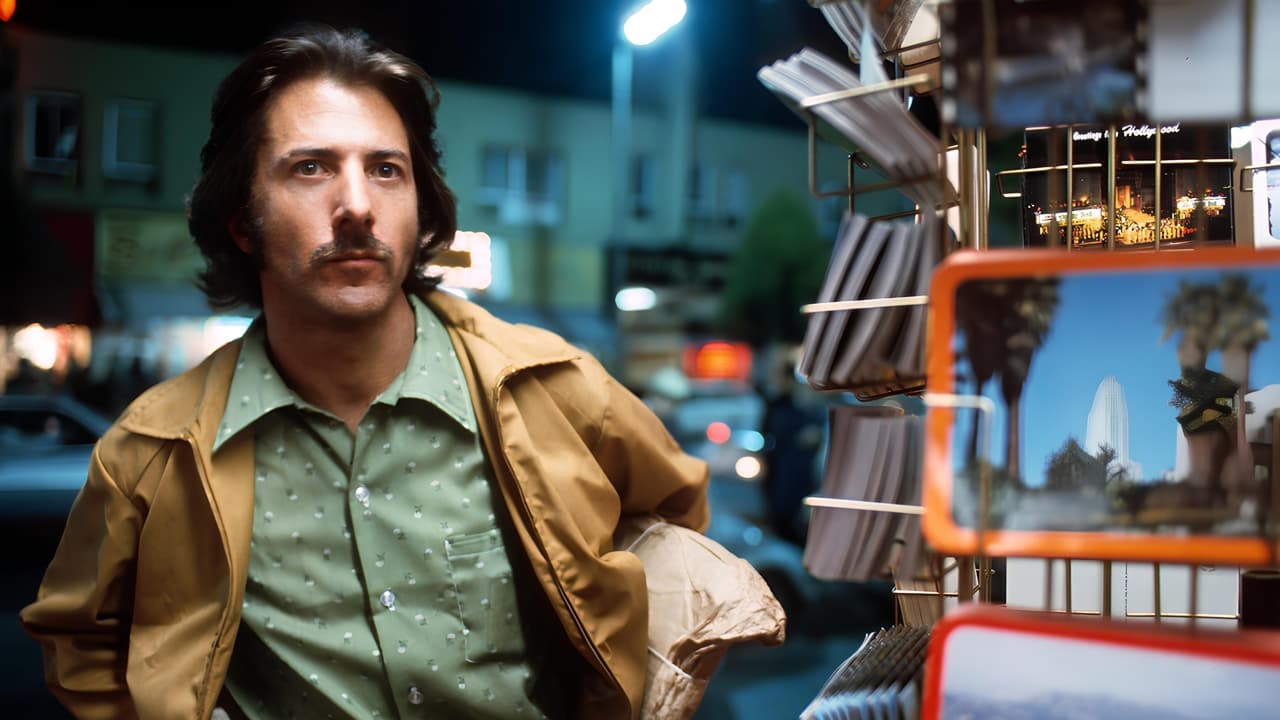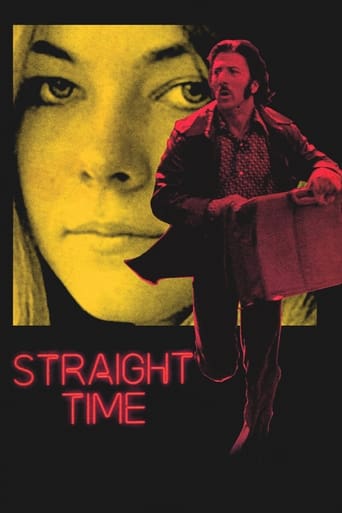KnotStronger
This is a must-see and one of the best documentaries - and films - of this year.
Phillipa
Strong acting helps the film overcome an uncertain premise and create characters that hold our attention absolutely.
Walter Sloane
Mostly, the movie is committed to the value of a good time.
blitzebill
As some have said here, this is a sleeper that should not be missed.Is it true "once a criminal always a criminal"? This cast certainly works hard to answer this question.Hoffman, Busey, Stanton, Russell, and Walsh all give great performances to a tight, well-written script.There is no fluff here, just a straight shooting story.The soundtrack is excellent as well.If you're reading this around the beginning of February, 2018, you can watch it for free on the TCM app on your portable device.
Theo Robertson
This is one of these films that's been shown on British network television a couple of times in the 1980s then has totally disappeared never to be seen again . A pity because I did remember enjoying it in my youth so when I had the opportunity of watching it again I took it with both hands I can understand why I did enjoy because some scenes really stuck out such as a scene where anti-hero Max Dembo is driven to a halfway house by his parole officer "HEY FATSO" and the scenes of the robberies taking place are genuinely tense and hair raising . These are unfortunately surrounded by lots of long scenes where nothing much happens This shouldn't be taken as a massive criticism because STRAIGHT TIME is very much a product of New Hollywood which was heavily influenced by the French New Wave and the long fairly empty and realistic scenes are in keeping with cinema verite . Everything here seems natural and naturalistic , everything from the performances to the background noiseReading some of the comments on this page it's interesting that some people have mentioned that Edward Bunker's source novel makes Dembo out to be a "victim of the system" where as in the film version he's not really any type of victim and more of an author of his own problems . One would think in the more touchy feely hypocrisy of the 21st Century armed robbery is the fault of everyone except the armed robber themselves . Again this is in keeping with with the ethos of New Hollywood when American film making was at a peak . Dembo isn't the most unlikable criminal anti-hero to appear in a 1970s Hollywood and it's difficult to dislike anyone played by Dustin HoffmanAs it stands this is one of Hoffman's more forgotten films which is ironic because it'll stay in the memory . That said it's mainly down to the fact some scenes are absolutely outstanding "HEY FATSO" while the film as a whole is merely just good
Claudio Carvalho
After many juvenile detentions and six years in prison, the small time thief and burglar Max Dembo (Dustin Hoffman) is released on parole. Max has an initial friction with his nasty parole officer Earl Frank (M. Emmet Walsh), but the officer agrees to let him live in a hotel room if he gets a job within a week. Max goes to an employment agency and the attendant Jenny Mercer (Theresa Russell) helps him to get a job in a can industry. Max is decided to begin a new life straight and visits his old pal Willy Darin (Gary Busey) and his family. When Willy brings Max home, he injects heroin and leaves his spoon under Max's bed. Max dates Jenny and on the next day after hours, he finds Frank waiting for him snooping around his room. Frank finds the spoon and sends Max to prison for tests to prove whether he had a fix or not. Despite the negative result, Frank leaves Max for a week imprisoned. When Max is released again, Franks gives a ride and presses him to tell who had a fix in his room. Max hits Frank, steals his car and seeks out his former friends to restart his life of crime. Jenny lodges Max at her place and has a love affair with him. Max and his best friend Jerry Schue (Harry Dean Stanton) successfully rob a bank; but after a jewelry heist in Beverly Hills, where Max loses Jerry and Willy, he leaves California and Jenny and heads alone elsewhere."Straight Time" is a small gangster film that shows how impossible is to a smalltime thief to regenerate and begin a straight life in insensitive the American correctional system with abusive parole officers and no assistance to the ex-cons. Dustin Hoffman performs a criminal that is trapped in the underworld, supported by an excellent cast of veterans and promising stars. The twenty-one year-old Theresa Russell in her second movie is incredibly beautiful. I have always been a fan of this talented but underrated actress that has an adorable voice and today I have recalled how gorgeous she was in the beginning of her career. M. Emmet Walsh performs his usual role of a despicable police officer. Gary Busey (with his son Jake), Kathy Bates and Harry Dean Stanton complete the great cast of this quite unknown film that has been just released on DVD in Brazil. My vote is seven.Title (Brazil): "Liberdade Condicional" ("Parole")
jc-osms
Little seen late 70's Dustin Hoffman film which I was pleased to catch airing on TCM and which shows its star was more than up to the "challenge" of playing "street", a la the younger competition De Niro and Pacino in a tough urban tale of a small-time thief released back into society but who drifts back to crime with disastrous results.The film moves us deftly through the key relationships that Hoffman's Max Dembo character enters, which all inform the narrative, starting with his petty tyrannical parole officer M Emmet Walsh, strung-out driver/buddy Gary Busey, young female interest Thelma Russell and cut-from-the-same-cloth fellow hoodlum Harry Dean Stanton, none of whom really profit from the experience (Busey & Stanton in particular!) before he heads out on the run to L.A., all chance of a "normal" life blown to bits.Looking a little Latino with his handlebar moustache, I've rarely seen Hoffman act better than this and it's something of a revelation seeing him here on top of his game given how much he's mellowed into his avuncular old age in recent years. He captures the edginess and essential loneliness of his character, erupting into rage when pushed just too far but just about capable of tenderness with the hero-worshipping Russell. His return to old ways starts small but inevitably builds up to violence and murder as his life spirals out of control.The film readily captures the mundaneness of Hoffman's ill-fated attempts to fit back into society and these are contrasted well with the action set pieces. The four main supporting roles mentioned above are all excellently played, by Walsh, Busey, Russell and Stanton and there's no time in the film when you don't believe you're seeing real-life characters. What humour there is, is sparing and grim, (it's doubtful that pesky parole officer will be able to hold his head up again in public, for one thing) and there's also a fluid, sympathetic musical soundtrack too to maintain interest, with themes a little reminiscent at times of "Midnight Cowboy".I didn't quite accept however the phot-montage ending which seemed to indicate that Dembo always was the proverbial leopard unable to change his spots from youth, as with the right breaks, one has to hope in modern society that offenders released back into the community can be rehabilitated.As an indictment of the U.S. parole system of the time however, this gritty, uncompromising movie makes its point effectively and further confirms me in the belief that the genre of Hollywood 70's contemporary drama was a rich one indeed.

